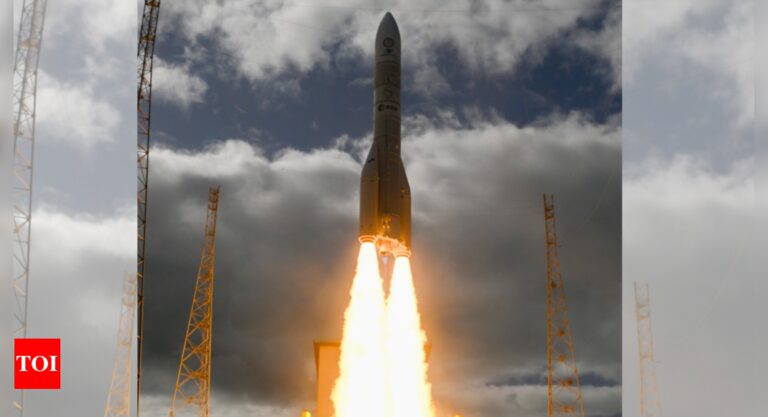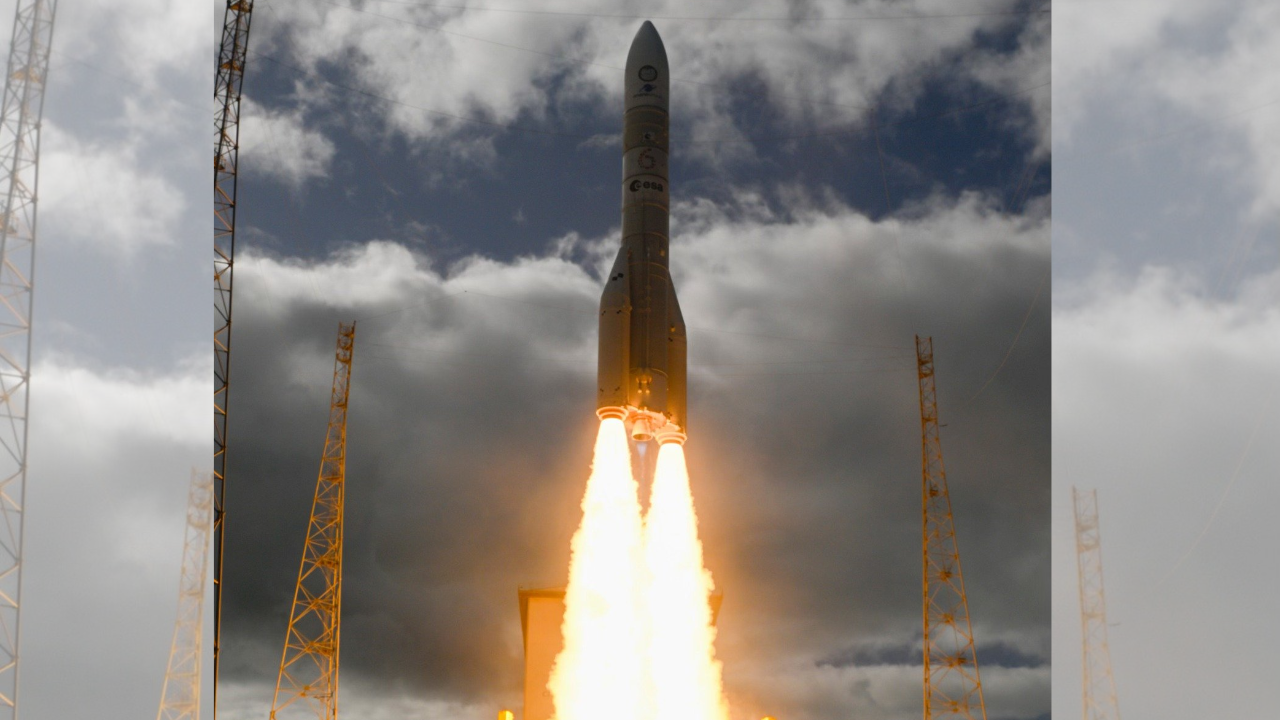
[ad_1]
The successful launch was celebrated by European space officials, who were eager to move forward from recent setbacks, including a four-year delay in the development of Ariane 6.”It’s a historic day for Europe,” declared Josef Aschbacher, head of the European Space Agency, while Philippe Baptiste, head of France’s CNES space agency, said, “Europe is back.”
Despite a slight deviation from its planned trajectory towards the end of the flight, the rocket successfully delivered microsatellites into orbit, marking a significant achievement for the European space program.
The Ariane 6 rocket, selected by the ESA in 2014, is capable of placing satellites in geostationary orbit 36,000 kilometres above Earth, as well as deploying satellite constellations at lower altitudes. The inaugural flight carried a payload of university microsatellites, various experiments, and two atmospheric re-entry capsules.
The mission’s success was not guaranteed, as nearly half of the first launches of new rockets have historically ended in failure. However, the Ariane 6 performed well, and a first commercial flight is expected before the end of the year.
The launch of Ariane 6 comes at a time when competition in the space industry is skyrocketing, with companies like SpaceX launching rockets at an increasing frequency.
Europe has recently found itself without an independent means of launching satellites due to the grounding of Russia’s Soyuz rockets and the failure of the Vega-C light launcher. The successful launch of Ariane 6 marks a significant step forward for Europe’s space program, and the ESA plans to ramp up the number of flights in the coming years to meet the growing demand for satellite launches.
[ad_2]
